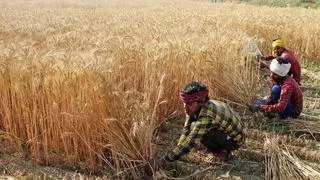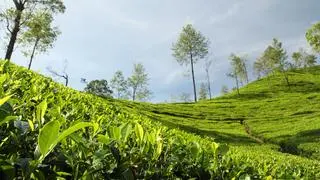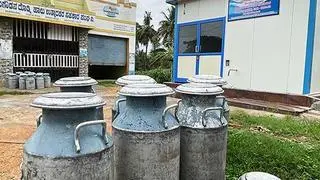One of the key players who helped India tackle the Covid pandemic with the Covaxin vaccine, Krishna Ella, Chairman of Bharat Biotech, had a different pitch to make at the millets conclave.
“The government should remove the GST (goods and services tax) on millets so everyone will join the mission on millets (products),” he said at a fireside chat with Richa Mishra, Senior Associate Editor, businessline.
His views found support from C Tara Sathyavathi, Director, Indian Institute of Millets Research — the centre of excellence in millets. “If demand for millets can increase rapidly, we can request the government to consider a GST waiver,” she said.
Responding to a question on promoting marketing of millets, Ella, who also owns Ella Foods, said the government and private sector will have to come together.
Small players
“Those in millets are small players who cannot support themselves. If, for example, ITC Ltd makes a millet product and gets a GST waiver, everyone will run behind the product,” he said, in a session filled with fun and humour.
Stating that NABARD should make a simple intervention in seeking the Centre to remove the GST, he said: “If we ask someone like the Planning Commission (Niti Aayog), they will think of too many figures.”
Ella called for a holistic approach to tackle the issue of tax on millets. “Organisations such as NABARD should take the issues such as 5 per cent GST on packaged millet. Otherwise, representations on this will become another paper,” he said.
Consumer survey
Calling for a different thinking in marketing millets, he said NABARD should fund a survey on consumers’ millet preference in the European Union and US.
The survey needs to find out if people need solid fibre or other things. “It will help Indian farmers to increase production and export,” he said. To the Covaxin maker, the “farmer is the best entrepreneur in the world”.
“I am from a farming family. We have to learn from him. For every ₹100 he spends he looks to make ₹120,” said Ella.
To a question if he will initiate a process for millet like Covaxin, the Bharat Biotech Chairman said: “I don’t mind losing money. Actually, I am looking at ideas.”
Gluten-free
One of the ideas is to introduce millet products that are gluten-free.
“Can we start high fibre, gluten-free products? Can we come up with a nutrition bar or some other product? We should bring food science into nutrition,” he said, adding that he does not want to “start everything”.
Ella said millet producers could look at the wellness point of view, and provide the young generation with chips grounded with millets. “It is an idea to look at by mixing and making them palatable for children. We need to think strategically to make them eat daily,” he said.
“Scientists, industry, policy makers and the government have to come together to promote millets. Let’s make the US eat our millets,” he said, adding that “we need to see how to present millets differently”.
Asked what his daily diet is, he quipped, “I eat whatever the cook gives me”. Referring to a presentation he made to former president Pratibha Patil, he said he highlighted the need for dryland agriculture.
“No one is focussing on that. We can save water from rice and wheat by switching to millets,” he said.
In a lighter vein, Ella said: “Probably, we need more GST on rice?” Stating that food is a business, the Bharat Biotech Chairman said: “We have a perception against millets as poor man’s food. [But] time has come to provide value for millets. We have to change the brand and nutritional value,” Ella said.
The Bharat Biotech Chairman pointed out how coconut oil was once considered bad for health, but now after research findings it has been proven to be good for Alzheimers and Parkinson’s diseases.
“In the US, you find everything in coconut — shampoo, oil..,” he said. Ella pointed how corn producers in the US came up with Kellog’s research institute to promote the use of corn cereals to solve the issue of surplus production.








Comments
Comments have to be in English, and in full sentences. They cannot be abusive or personal. Please abide by our community guidelines for posting your comments.
We have migrated to a new commenting platform. If you are already a registered user of TheHindu Businessline and logged in, you may continue to engage with our articles. If you do not have an account please register and login to post comments. Users can access their older comments by logging into their accounts on Vuukle.